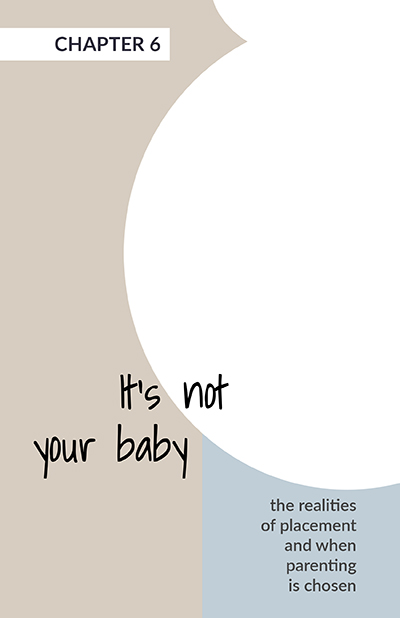
COERCION
Emotional
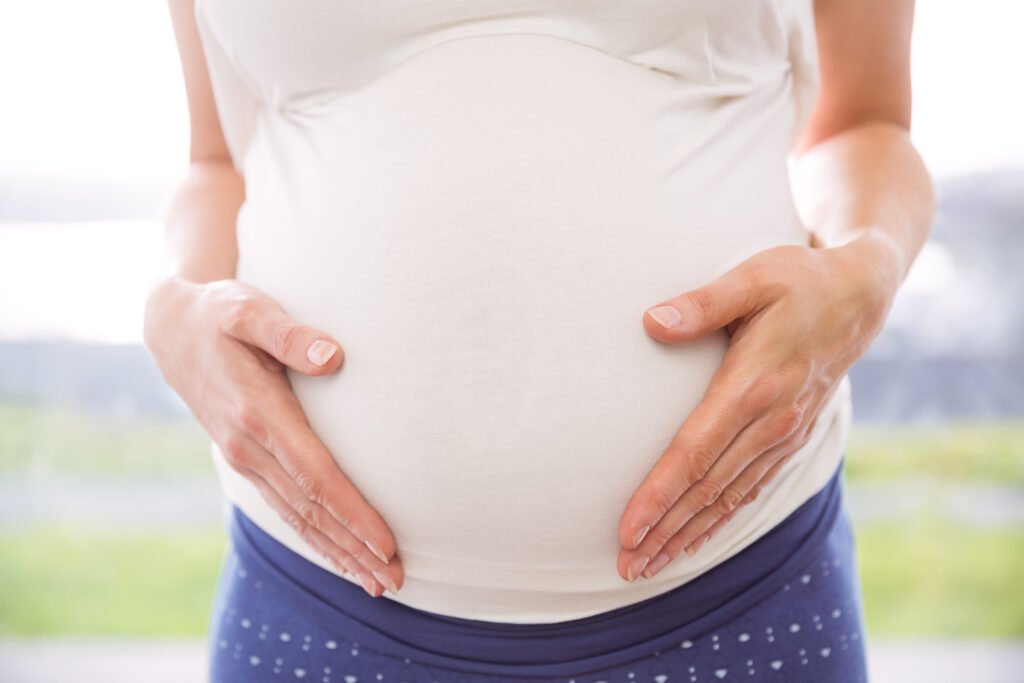
Often times adoptive parents feel that after they are chosen, the baby was meant to be in their family. One adoptive mom said, “We thought he was our son. They called us and told us to pack our bags because he would be born any minute. We checked an empty car seat onto the plane, excited that it would be filled with our son on the way home. We flew across the country without telling our parents and we thought of exciting ways to tell our family… we were just going to show up on their doorstep with their new grandson. How fun is that? We even picked out a name for him. It was amazing when we met her; and the name she picked out for him was almost the same name we had picked. It was meant to be. We went out to grab a quick lunch while they got the papers ready, and when we returned… she had changed her mind.
The agency kept us around for two more weeks, each day trying to persuade her to make him an adoption plan… to “do the right thing.” We were
devastated the whole time, trying to wonder what we had done wrong. Did she not like us? We finally just went home because we could see that it was pointless to wait any longer. The agency promised they’d try again. There would be two more mothers who would choose to parent babies we thought we were going to adopt, before we ended up adopting. I still think about Baby J; I hope he is happy and doing amazing with his mother, but I don’t miss him because he is not mine. He is hers. He was never mine. None of those babies were ever supposed to be mine. I don’t even know if the little girl we adopted was supposed to be ours.
There were many days I sat in my room in a ball, crying, not knowing how I could go on after that first ‘failed placement’ and then each time after that. Time does heal those wounds, but adoption brings new ones.
I thought adoption would be all flowers and happiness and running through the fields. Instead, it is trauma and pain and yearning. It’s sleepless nights wondering why you thought you could do this, because it’s not easy. These kids all have problems stemming from trauma (at least, mine do). You don’t get choose which problems your kids have when you give birth to them, and you don’t get to choose their problems when you adopt them either. You just get to love them. And then they yell at you because you’re not really their mom, and they fantasize about their other family, and you have to be okay with it. You have to decide if you are okay with then talking to their other family. How secure are you in your relationship with you child? They need to know their roots and will have questions about them. These are questions you never thought you would ask yourself. But, because you have adopted, you are in it now. These are things that are important.
When I first adopted my kids, I definitely had the mentality that they were always “supposed to be mine” – that God had this Plan, woven from before the world was, that we were going to raise all of these kids. Looking back, I guess that was how I made myself feel better about being infertile. But, as the kids started growing up and I started seeing them struggle, I realized that this was not about ME at all, it’s about THEM. And how selfish was I to think this was all about me! How could I even think that the ‘Plan’ could be for them to be ripped from the womb of the mother who loves them, and to be raised by strangers? No, it’s not the ‘Plan,’ it’s just life. It’s just a layer of trauma that they have to live with and I get to love through it. So, once I realized that it was about them and not about me, that’s when my perspective changed…. and I would say that probably took about 8-10 years of raising my kids. It also took talking/listening to others, including birth parents and adoptees and empathizing where they were coming from. I did not come to this understanding by myself. I am grateful to those who shared their experiences- hard as they were- so I could learn how to be better.”
As a community there are differing views on what to call it when parenting is chosen, but maybe it doesn’t need a term. Maybe you could just say, “we were chosen for adoption, but weren’t placed with”, or “we were matched, but their mom chose parenting”. Some common terms are “failed placement, failed adoption or reversed adoption.” This is such a sensitive topic, and we look at the word “fail” to be such an inclusively negative word that it may lack the grace needed in such a sensitive situation. Situations like this deserve the explanation that comes with more than a few words.
In the first few years after placement, many overcompensate about the positive parts of adoption. A birth mom said, “I think we all try to make adoption feel better in the first few years because it protects our hearts. It’s not malicious but it does cause adoption to seem like it’s awesome and so full of great things.” I for sure overcompensated with this for the first few years after placement. My advice for those hoping to adopt is listen a lot more for at least the first five years. One adoptive mom said, “we often want to educate others from our “hard” earned wisdom in the early years of adoption. There are so many things we don’t even know that we know and that was #notinthebrochure.” This also applies to birth moms after placement. No expectant or birth mother is capable of being mindful or aware of what the rest of her life will be like after placement.
One birth mom said, “I was 15 when I placed my first baby. There’s no way I was aware of my consequences of placing. Sure, I thought of the “consequences” of parenting. Would I graduate high school? Would I be able to provide for my baby? What would that look like long term for me or even my parents? All these things went through my mind. But the flip side is completely unknown and there’s not enough education out there for that. How was I to know I would have a strained relationship with his parents for the first 14 years of his life? How was I to know I wouldn’t be able to emotionally and mentally handle such a huge adult thing, and would end up turning to alcohol and drugs when I was barely even old enough to drive just to be able to handle the mental anguish?”
Another birth mom said, “I definitely wasn’t mindful of what I was going to be giving for the rest of my life either for either adoption. I’m giving up being mom. I’m giving up being the one they kiss good night. I’m giving up being able to help with homework and life’s troubles. I’m giving up family vacations. I’m giving up being part of every victory and every fail. I don’t know that the magnitude of all that is able to be comprehended by anyone before signing that dotted line. It’s hard to comprehend even still decades later.”
Financial

One of the main ones is money. To start, paying for expenses is a tricky one. Of course, you want to make sure that an expectant mom has their basic needs met, but it can often be viewed as coercive, especially when money, and the lack thereof, is the main reason an expectant mom is considering adoption. Every state has different laws concerning expenses, so make sure you know what laws are in your state.
Regarding the ethics around paying expenses, one birth mom said, “In an ideal world, financial programs would be available and comprehensive enough to help any expectant parent and postpartum person regardless of their intention to place for adoption. Unfortunately, in the US that does not exist. Exchange of money between the HAP or APs and the birth parents should never happen. That’s a hard line to take but I stand by it. In living organ donation, the donor is not allowed to receive ANY assistance, financial or otherwise, from the recipient.
Assistance can be obtained from government programs and non-profits that exist for just that reason and never have any strings attached. Anything otherwise would introduce the possibility of coercion and blur the line toward “exchange of goods.” Things that for sure are not blurred lines are giving cash/large checks for expenses (legally you MUST have all expenses paid reported/tracked), paying in any way for a baby, exchanging a baby in parking lots and preying on vulnerable populations and cultures that are financially unstable.
One birth mother who worked for a time at an agency had some insight into what happens after placement and the “expenses” stop coming in. “It offers a false sense of security to expectant parents. Often, they are put into an apartment or hotel they can’t afford on their own, food purchased, cell phone bill paid, utilities paid……and then the MOMENT the 6-week post op appointment is over, the birth mom is given a gift card and bus ticket home with ZERO support. They are literally evicted from their shared apartment/home because they are no longer needed in the adoption plan. Let that sink in. They go BACK to poverty, just this time, permanently unhoused. They are stuck trying to figure out how to afford an apartment, food and utilities, while also grieving the loss of their child.
Agencies remind you that you’ve received funds. They want you to feel the impact of the couple putting out their money for you. There are government programs that can aid during pregnancy. If an agency can get you Medicaid, why can’t they help you with food stamps/cash aid? It’s a grey area, for sure, and I see both sides, but I have also worked for agencies where they do not blink twice before setting a birth mom on the street after her “time is up” and she no longer has anything the agency wants or needs.”
Another birth mom said, “It’s a fine line of feeling like you’re being paid for the baby versus understanding what expenses are. It’s hard to get back on your feet after giving birth to a child. What’s even more difficult is finding mental health moving forward is very costly.” Another birth mom perspective on this is, “I got nothing. I had to pay for all expenses…lost wages, clothes, hospital bills, etc. I would have been thrilled with a thank note.” And one more, “I wasn’t a child but I was in school and 21. I didn’t know anything about child support, rights, access to housing, Medicaid, snap and the list goes on. There is this weird balance where you can legally be an adult an know nothing about adulting.”
An adoptive mom said, “For both of my children’s birth mothers, I paid some expenses (medical, legal, counseling, cabs, gift cards for food, etc.) and helped them access local social services (section 8 housing, food stamps etc.). Now, it seems both morally the right thing to do and morally so very wrong to do.”
Here is some great advice from a birth mom, “Placement is super complicated. It’s more complicated when you factor in socioeconomic issues (I didn’t understand credit until I was 28) now I am a VP of a large financial company. Placement was a desperate time and a hard place. Talk to anyone that has made that choice and they will say the same. Their reasons might differ but no one walks away from their child without hurt. From one birth mom to another, please let go of shame that hides you. To adoptive parents, please let go of judgement that confines you from loving part of your child.”
Moral/Religious

When an expectant mom considers adoption, she is often told it will be the selfless choice. That it’s “God’s Plan” and they are so brave. They are also told how they are unable to parent on their own and all the reasons why their baby needs other people to raise them. Using religion or guilt to convince a mother she is not of worth is very coercive. One birth mom said, “I have A LOT of bad feelings still about being groomed for placement by my agency by being put up on a pedestal and essentially worshiped for my “selfless” choice (that I hadn’t officially made yet.) People still try gushing over the fact that I placed and I’m bitter. A selfless choice implies knowing the implications of your actions. I did what I thought was best at the time for my child based on the information I was given, same as everyone else does for their children. The difference is I was given crappy information.”
Building a Relationship
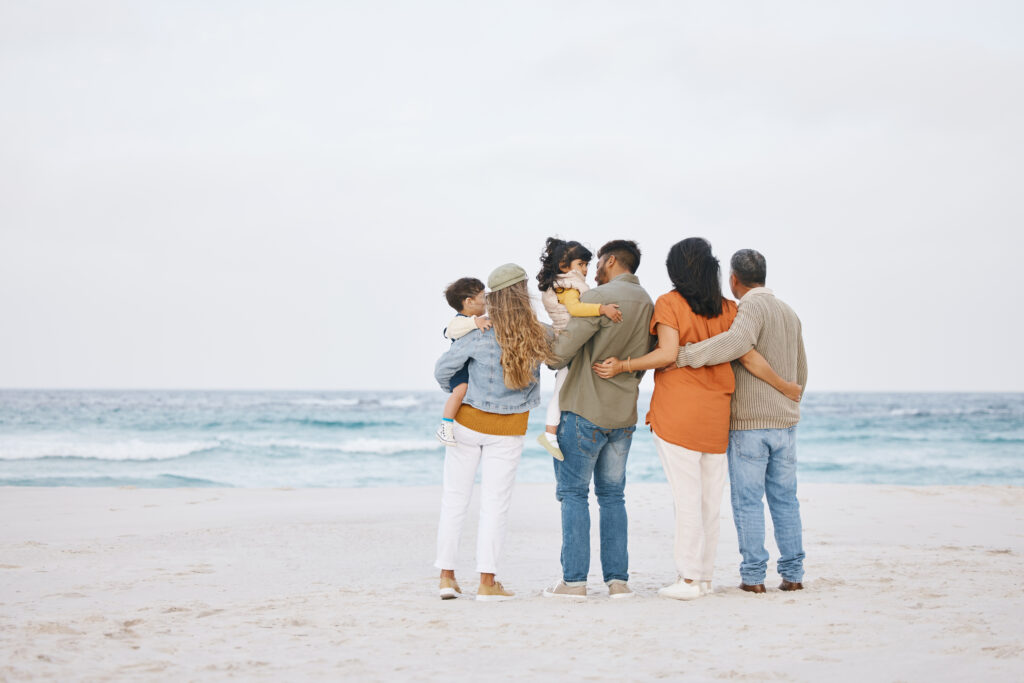
Should you build a relationship with the expectant mother/parents before placement? This is another one that can become a gray area. Here are some perspectives on spending time together before placement. One birth mom said this about what it meant to build a relationship before placement, “We spent so much time together! They came to all my doctor’s appointments (by my request) and took me to lunch after most times. I don’t think any of it was coercive, but I do think it may put a sense of responsibility to place. Having said that, I don’t know how you’d avoid that. I think it’s natural to have those types of feelings for people you care about.” Another birth mom said, “I loved spending time with them at their home and getting to see where my child would be living. Some of the best times I had were times spent hanging out with their family, just chatting and becoming family. It showed me they were genuinely interested in my well-being and that of my child. It felt comforting to me.”
An adoptive mom shared, “Some of my favorite memories were sitting on a couch and watching tv together, just doing everyday things, real life things, were always my favorite thing. I feel like the foundation we made before placement make the rocky parts after placement a tad easier to get through. Without that foundation, I don’t think we would be as close as we are today. The best advice about this I could give those hoping to adopt is to have empathy. Have so much genuine love, respect and empathy for this person you are getting to know and even if parenting is chosen, you will never regret caring about another human being.” If you are only trying to get to know them in order to get their baby, you for sure should not build a relationship before placement, or frankly, adopt.
Choosing a name
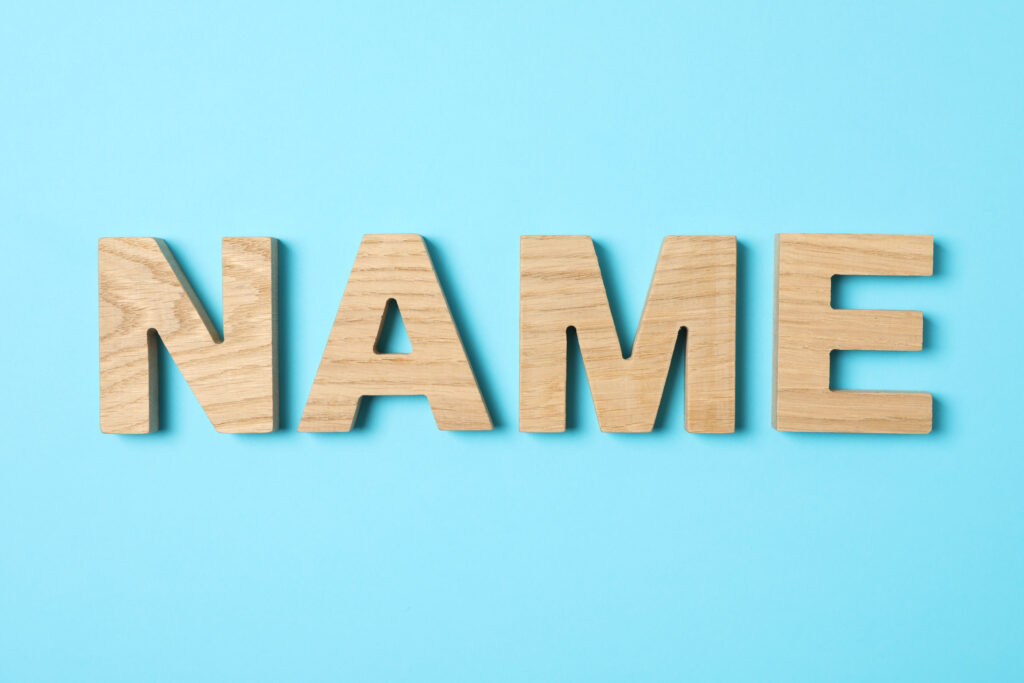
Can choosing a name before placement be coercive? Another gray area for us over here. The main thing I’d recommend those hoping to adopt do is have honest, open communication about what names you are thinking about, and even better, get their input on the names. Using a name they chose, or their name or a family name for a middle name is a kind gesture and helps connect the child to their birth family. What you should not do is tell them they can choose a name and then change the name after placement. Sadly, there are many stories of birth moms who were told they could choose the child’s name and the adoptive parents change it. A name is a very special thing that will be with the child for the rest of their lives and breaking that trust so early on can cause tremendous damage to a relationship. If you are adopting from foster care, it is not recommended to change the child’s name. There are stories of older children wanting their name changed to make a fresh start, but that should be the adoptee’s decision and should never be pushed by the adoptive parents. Bottom line, choose to have those hard conversations, don’t lie, and make sure it about what is best for the adoptee.
Matched!
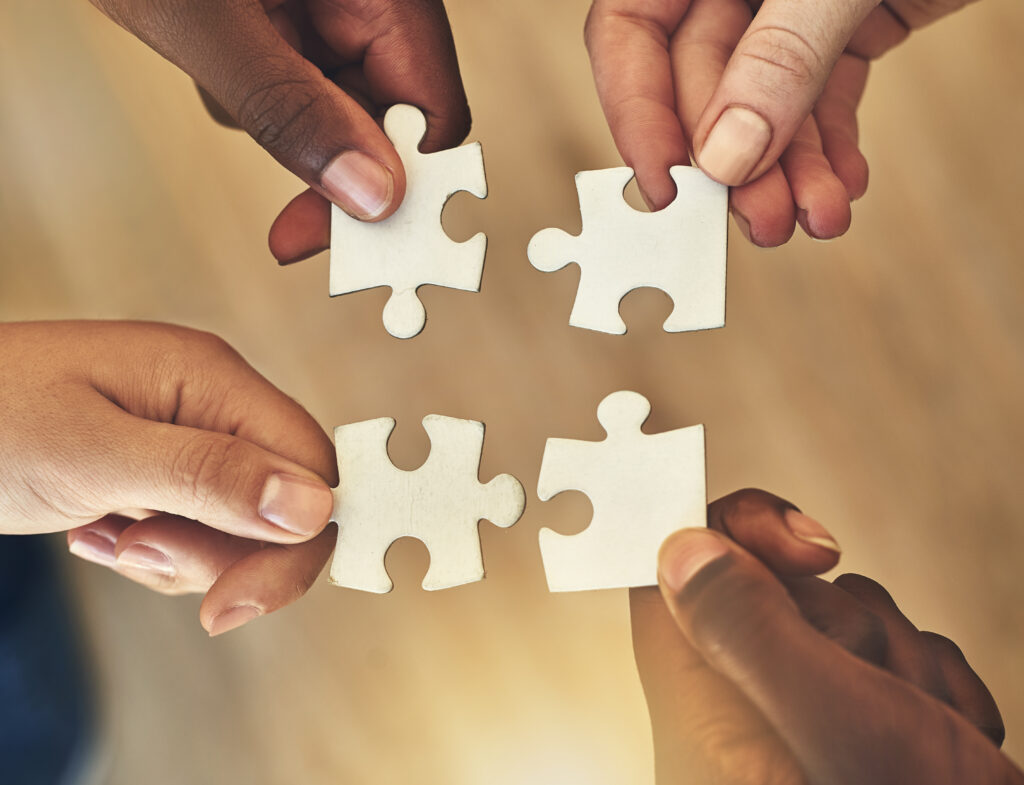
After you have been matched, when do you announce? How do you announce?
Every family will choose something different in these situations. What you must never do is refer to the baby as yours. Keep in mind that baby IS NOT your baby and should never be presented to family and friends in that manner. I for sure made mistakes on this one. We announced by having our sons wear shirts that said “big brother” and hold a onesie that said “little sister”. Using our children in this way for sure could be considered coercive. Our intentions were never that, but looking back, I wish we didn’t do that. Instead, I wish I would have just said we have been matched for a possible placement and are so happy to welcome their family into ours.
Ultrasounds?
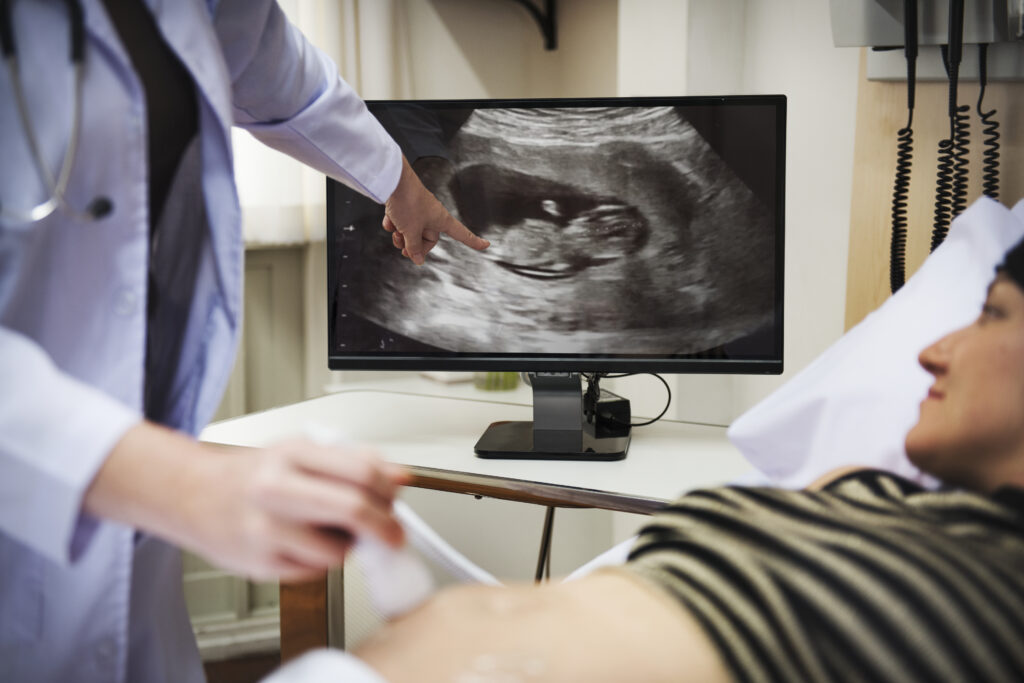
Should you go to ultrasounds? I would say yes if you are invited. BUT, and there is a big but here, make sure the hospital staff knows that SHE is the mother and you are there just to support her. If they talk to you in anyway that would indicate that you are the mother, correct them. I was invited to go to one of the ultrasounds. It means a lot to me still that she wanted me there, but to be totally honest, I felt like was intruding on moments that weren’t mine. I tried not to look at the tv screen too much or say anything. Any time I was at the hospital I felt like the staff thought I was like a baby stealing crazy person (only a few were actually rude, thankfully).
My advice is I would just really ask and make clear that it was really something that the expectant mom wanted and let her know I was only there to support her in any way she needed. I also didn’t ask for pictures and I would for sure not have posted them. I feel like those are for the mom of that baby. Again, if they give them to you, that’s their choice, but know how BIG of a deal that is and hold those sacred.
A birth mom said this, “I had the adoptive mom at a few of my ultra and it seemed like a good idea at the time. For me, my thought was that she was most likely never going to get that opportunity and I wanted her to get as close to that as possible. I was SO sure that I was going to go through with this that I didn’t even think of the potential heartbreak it could cause. I tried really hard to disconnect myself from the babies, which in hindsight ended up being super damaging to me and my healing process. They didn’t post anything knowing it wasn’t a sure thing and I wish I would have allowed myself to really be their mom for that short time.”
My advice is I would just really ask and make clear that it was really something that the expectant mom wanted and let her know I was only there to support her in any way she needed. I also didn’t ask for pictures and I would for sure not have posted them. I feel like those are for the mom of that baby. Again, if they give them to you, that’s their choice, but know how BIG of a deal that is and hold those sacred.
A birth mom said this, “I had the adoptive mom at a few of my ultra and it seemed like a good idea at the time. For me, my thought was that she was most likely never going to get that opportunity and I wanted her to get as close to that as possible. I was SO sure that I was going to go through with this that I didn’t even think of the potential heartbreak it could cause. I tried really hard to disconnect myself from the babies, which in hindsight ended up being super damaging to me and my healing process. They didn’t post anything knowing it wasn’t a sure thing and I wish I would have allowed myself to really be their mom for that short time.”
What about baby showers?
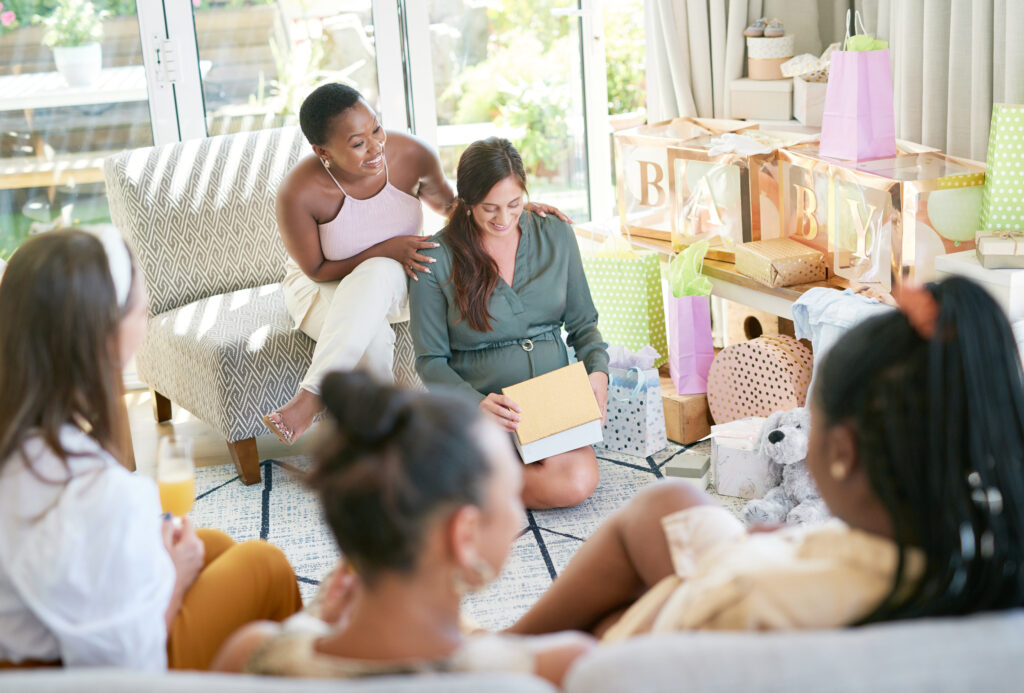
A baby shower is one of those rituals every mother wants to have to celebrate their new arrival. In adoption, it’s more complicated. This is another one I wish I would have done differently in one way. I did have one shower for our daughter’s birth mom that was just gifts for her (like a pampering shower) with just a few of my close friends so they could get to know her. Open adoption wasn’t as well-known when we adopted and I wanted to make her part of our family and have my friends get to know her and how amazing she was. However, we also did a shower for the baby before placement and had her mom come and I would now maybe wait until after placement for that. The only reason I say maybe is because when I picture doing it after placement, especially soon after, I remember how raw our emotions all were and maybe that would have been even harder. Unfortunately, I don’t have perfect answers on this one, just keep in mind that showers could for sure be considered coercive and the best thing you can do is be honest about how you all are feeling and if it will hurt your relationship or cause any kind of coercion. Make sure to include them by at least inviting them to any of the showers you may have.
One birth mom said, “I am not a fan of pre placement baby showers unless specifically asked for by the expectant mom. It puts an enormous pressure on her to place and would give her guilt for even considering parenting. And if she did decide to parent, how incredibly hard that would be to explain to everyone who came to the baby shower. My last pregnancy, we did a sip n see after the birth and honestly it was just as special and fun as my baby showers for my other two. I just think ethically and realistically a baby shower pre placement isn’t a great idea, unless requested by an expectant mom.”
Another birth mom said, “As a birth mom, pre-placement baby showers were hurtful and really put a lot of pressure on me. Not that I was considering changing my mine but sure did make me feel like I couldn’t change my mind. It also really made me feel even more like an end to their means. I think post-placements showers are great! A great way for friends to meet the new addition to your family and celebrate.”
An adoptive mom had another great idea about doing the shower when you announce you are adopting (before being matched). She said, “We had not matched, so when my family threw a shower for us after we announced we were adopting I felt better that it was not for a specific child, it was just showing support for us on our adoption journey and celebrating the idea that we would one day be parents.”
Happiness after placement?

Is there happiness after placement? Is it like what you see on TV? Short answer, it’s a roller coaster of emotions and everyone will process placement differently. Many birth mothers suffer from PTSD, depression and anxiety after placement. Many adoptive mothers suffer from what we call in the community, PPD, or Post Placement Depression and/or anxiety. I had never heard about PPD until I found a group of adoptive moms who were talking about it and I realized I had it. I felt such guilt for any happy feeling and had a hard time bonding with our daughter. For a long time if felt like I was babysitting. I was at the birth and knew that feeling she was having right after birth that you would literally die right there to save your child. That love and bond is like nothing I’ve ever felt before in my life and I had extreme guilt about her placing her child that she loved so much with us. Having that guilt made me overcompensate in many ways. It for sure was nothing like I’d seen on tv or in the movies. Placement was one of the worst days of my life and literally crushed part of my soul. Would I do it again? Yes. Yes, because I can’t imagine our lives without our daughter and her family. I can’t imagine my life without those in the adoption community that have become some of my best friends. But, would I adopt again? No. Knowing what I know now I would not choose to do it again. That will be different for everyone, but that is how I feel about it.
The things you learn and are grateful for after adoption I’ve found are very different than before. One adoptive mom said it well when she said, “I’ve found more happiness in general from the fruit of the struggles than anything that ever came to me easily. Adoption has been no exception. My children are not the “fruit” of my struggles; who I’ve become is the fruit. My children make me insanely happy, and the guilt can be overwhelming some days, but I’m someone who can empathize with loss and grief (and the gratitude and happiness that can live parallel to those emotions) and that never would have been possible without this experience.”
An adoptive mom had this perspective, “I struggle so much with adoption. Even though adoption was the only means for me to have children in my home, I hate that someone else had to suffer for me to have children. I hate the pedestal I am placed on because we fostered and adopted-in some ways it has added to my own personal guilt of having the blessing of raising my children while their bio mom is missing out on their lives. I feel a sense of frustration with myself when I feel frustrated with my girls or want to just be left alone for a while. I would feel like I am somehow ungrateful. I think that’s why I am fighting so hard for my girls to have an open adoption relationship with their biological family. Honestly, it was the best thing we have done! I am grateful for their bio mom and her willingness to be a part of our family and a part of the girls’ lives. I wish we could change the stigma that comes with open adoption, especially when it comes to adopting from foster care.”
The guilt is hard. “I feel guilty a lot for being happy. How dare I be happy when my son’s birth mom is grieving? How dare I be happy when my son will have a permanent pain from this loss? If only there wasn’t the guilt.” – Adoptive mom
Another adoptive mom said this, “I use to feel guilty over being happy after placing. I’ve learnt while adoption is a big part of my life, I can’t let it control my life. I deserve to be happy. My daughter I parent deserves a mom who is happy. I’ve struggled with depression for many years (I know a lot was brought on with the adoption) and I am just starting to break through and it is so freeing.”
“As an adoptive parent, I’m happy most of the time… how could I not be, with this beautiful and vibrant child to do life with? But then guilt and doubt creep in sometimes. What about her birth family? What about the loss they’ve experienced? What about the trauma my daughter has endured? What if I’m not enough? Then sometimes I also feel sorry for myself. I’ve come a LONG way grieving my infertility, but my core group of local friends met originally via a Facebook “mom group.” Many of them are not done having babies. Much of the conversation revolves around birth stories or breastfeeding…or tips for conceiving. I cannot contribute to any of those conversations, so I linger on the sidelines…forever a fraud. An imposter. Then I feel guilty for feeling sorry for myself… because I’m the one who “won” in all this. I went home with a baby, after all. So, I try and pull myself up by the bootstraps and get back to being happy.”
A birth mom said, “I feel like it’s taboo to say that I am ok and very happy with my life around other birth moms. Not all, but a lot, make me feel guilty or like I’m in denial. I think about and talk about my birth son often, but it isn’t a crushing thing in my life. It is joyful and freeing.”
“I still have the deep sadness and pain but I also have days where I don’t think about my birth son and days where I am REALLY happy, but that makes me feel guilty because I know society can put pressure on me to be sad and distraught when I know I made the best decision that I could in placing him. I would want his adoptive mom to be happy.” – Birth mom
What about adoptees?
Their thoughts and feelings surrounding placement will vary and will be usually quite complex. We will talk more about this in Chapter 10, but here is one insight from an adoptee, “I’ve met my birth mom and I have a relationship with her and when I found her, I also found out that my older sister (who stayed with my mom) died at a very young age from substance abuse. I’ve felt really guilty for feeling this way, but that I’m grateful I didn’t grow up in the environment she did.
I struggled with substance abuse as a young adult in my early 20s but I had a great support system and was able to straighten myself out. It breaks my heart my sister didn’t have that and it seems a little unfair that I’ve had such a happy life with my adoptive mom. If she had known about my sister, she’d have adopted us both and we could’ve grown up together and maybe she’d be alive. Who knows. So many what ifs. But I can’t dwell on that because it was and is out of my control.
Anyway, like mentioned in the post the feelings are varied and complex but I do have a lot of happiness surrounding my placement and SO much love for my family.”
When parenting is chosen
When you decide to adopt, you need to go into it knowing that this is something that could happen after you’ve been chosen by an expectant mom. To be honest, it happens often. When it does, what do you do and not do? To teach that in a quick way, here is a hypothetical situation. The child’s mom chooses to parent. You are very upset and hurt (valid). You feel loss and grief and aren’t sure how to express all of these emotions. So, you get on social media and post:
“Our baby that we prayed and hoped for was taken from us. We are devastated. Please pray that the birth mom changes her mind. We have prepared for months for our baby to come home and now have a nursery full of things we picked out for her and now it’s just an empty room. She went home with nothing and we could have given her everything. We are at a loss of what happened and don’t know why God would allow our baby to be taken from us. Please pray for us.”
Let’s unpack that.
First, as the chapter title hints at, it’s not your baby. You should never refer to a child as yours when placement and finalization hasn’t happened. Being devastated is totally valid and it’s ok to feel and express that. The next no-no is to post about asking the mom to change her mind. It’s not ok, it’s coercive and it’s really just a horrible thing to do. The loss that you are feeling would have been felt by her times a lifetime. In this moment you need to dig deep and find empathy. Talking about things you have, money or otherwise, is also just not in good taste. Babies need love, diapers, food and some clothes. The best thing to do in this situation is help a mom in need, because if she was looking into an adoption plan, she most likely will need some support. It won’t be easy, but you will never regret helping someone in a hard
situation. Finally, please don’t bring God into this. This mom has agency to choose what she feels is best for her and her baby. When you think about it, you are praying for the loss of her baby and that’s pretty messed up. It hurts. Totally valid. But instead of the above post, what about writing something like this instead?
“Many of you know that we were matched with an expectant mom and had an adoption plan. She had her beautiful baby a few days ago and has decided to parent. We are feeling devastated for sure. We also are praying for her and hope to be able to support her as she navigates this new plan with her baby. If you are looking for ways to support us, we are gathering things she may need to help her and her baby. Please pray for all of us as we figure out how to move forward. We truly care about her and the last few months getting to know her has been an experience we will always cherish.”
What is this difference between the two posts? In the latter, it is full of empathy and love. In the first one, it is lacking any empathy and demanding it instead. When something bad happens, I always try to do two good things to put more good into the world. That’s what the last post does. You will never regret choosing to put more love into the world, especially when you are hurting.
Red flags/unethical practices to be aware of
• Giving cash in an envelope for “expenses”
• Preying on poor women (poverty should not be the only reason a woman places)
• Preying on populations in states that have strict abortion laws – especially in crisis situations
• Flying in out of state mothers
• Agencies that still offer closed adoptions as a choice instead of promoting open adoptions
• Preying on specific vulnerable cultures (I.e. Marshallese)
